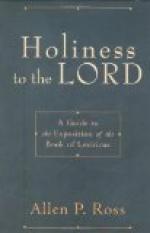“So, likewise, in his business in the kitchen (to which he had naturally a great aversion), having accustomed himself to do everything there for the love of God, and with prayer upon all occasions, for his grace to do his work well, he had found everything easy during fifteen years that he had been employed there.
“That he was very well pleased with the post he was now in, but that he was as ready to quit that as the former, since he was always pleasing himself in every condition, by doing little things for the love of God.
“That the goodness of God assured him He would not forsake him utterly, and that He would give him strength to bear whatever evil He permitted to happen to him; and, therefore, that he feared nothing, and had no occasion to consult with anybody about his state. That, when he had attempted to do it, he had always come away more perplexed.”
The simple-heartedness of the good Brother Lawrence, and the relaxation of all unnecessary solicitudes and anxieties in him is a refreshing spectacle.
* * * * *
The need of feeling responsible all the livelong day has been preached long enough in our New England. Long enough exclusively, at any rate,—and long enough to the female sex. What our girl-students and women-teachers most need nowadays is not the exacerbation, but rather the toning-down of their moral tensions. Even now I fear that some one of my fair hearers may be making an undying resolve to become strenuously relaxed, cost what it will, for the remainder of her life. It is needless to say that that is not the way to do it. The way to do it, paradoxical as it may seem, is genuinely not to care whether you are doing it or not. Then, possibly, by the grace of God, you may all at once find that you are doing it, and, having learned what the trick feels like, you may (again by the grace of God) be enabled to go on.
And that something like this may be the happy experience of all my hearers is, in closing, my most earnest wish.
FOOTNOTES:
[Footnote 6: From Talks to Teachers on Psychology and to Students on Some of Life’s Problems. Henry Holt and Company, New York, 1902.]
[Footnote 7: Fleming H. Revell Company, New York (AUTHOR).]
SCIENCE AND RELIGION[8]
Charles Proteus Steinmetz
The problem of religion—that is, of the relations of man with the supernatural, with God and immortality, with the soul, our personality or the ego, and its existence or nonexistence after death—is the greatest and deepest which ever confronted mankind. In the present state of human knowledge, science can give no definite and final conclusions on these subjects, because of the limitations inherent in science.




